Prabowo opens a new chapter in Indonesia’s long history wars
The Prabowo administration has commissioned a revised version of the nation’s official history books. Critics fear it will use the exercise to whitewash his chequered past.
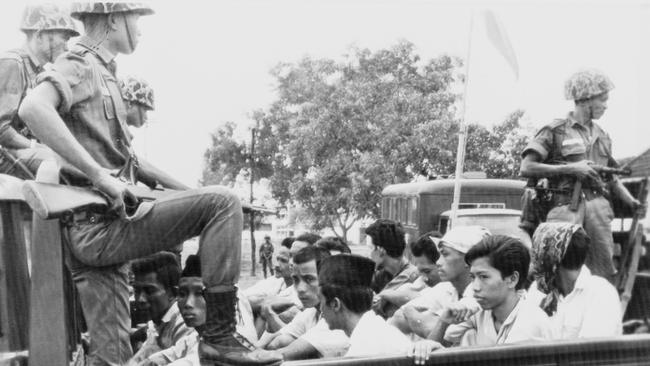
For almost six decades, Bedjo Untung has campaigned for the Indonesian state to formally acknowledge the military-led Communist purge over five bloody months from October 1965 in which more than half a million Indonesians are believed to have been massacred.
As a 17-year-old student activist, Bedjo was jailed without trial - one of more than a million caught up in the communist witch hunt that followed that killing frenzy - and released nine years later into a country firmly in the grip of Suharto’s autocratic New Order regime.
For him and thousands of other Indonesians still seeking acknowledgment of their sufferings or justice for slain loved ones, the Prabowo administration’s plan to rewrite Indonesia’s history dating back to the prehistoric era has sparked fears of another whitewashing of the country’s chequered past.
The project, overseen by Culture Minister Fadli Zon, involves 100 academics commissioned to produce a 10 volume revision in time for Indonesia’s 80th anniversary of Independence on August 17.
Amid a growing backlash from academics and activists concerned at what might be deleted from already-sanitised official history books, the historian leading the project, Susanto Zuhdi, has emphasised the importance of documenting the “ups and downs of the nation”, including dark episodes that may be uncomfortable to read.
Yet the theme of the project - “reinventing Indonesian identity” as a source of pride - has only heightened suspicions the exercise is being driven by political elites with “direct ties to sensitive historical issues”.
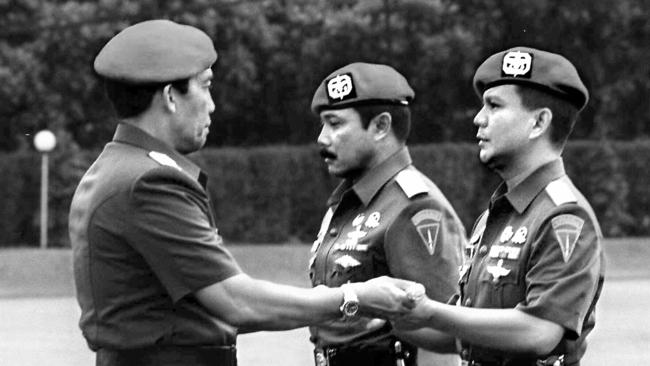
Prabowo Subianto himself has for decades faced allegations of human rights violations while commander of a Special Forces unit accused of mass murders in East Timor, and the kidnapping and disappearance of student activists during the 1998 uprising that led to Suharto’s ouster after 32 years in power. He has acknowledged the kidnappings but denied involvement in disappearances.
In an eloquent critique of the project this week, Yanuar Nugroho, an Indonesian academic and former adviser to Mr Prabowo’s predecessor Joko Widodo, warned; “State-driven rewriting of history - especially by regimes linked to past atrocities - poses grave risks to democracy and justice.
“When historical records are distorted to serve a powerful few, it’s not just archives that collapse - it’s the credibility of the state, the education system, and public memory.”
Former Indonesian attorney general and chairman of the Alliance for Historical Transparency in Indonesia Marzuki Darusman told the Weekend Australian he had seen a leaked copy of the revised version that showed “many problematic omissions and leaps”.
“For example, the role of women (in the fight for Independence from the Dutch) was omitted. Also, the 12 human rights violations acknowledged by the previous government were not fully included,” he said, referring to a series of events that includes the 1997-98 disappearance of activists, 1998 riots and multiple incidents of extrajudicial killings.
“There are concerning elements that suggest this version of history is being written to glorify the current ruling powers.”
Professor Susanto has rejected criticism of the project, telling CNN Indonesia this week: “Some say it’s a revision, a correction but we’re not correcting. That implies the past was wrong. We want to add, link things together. How do we weave Indonesia’s story into a coherent narrative?”
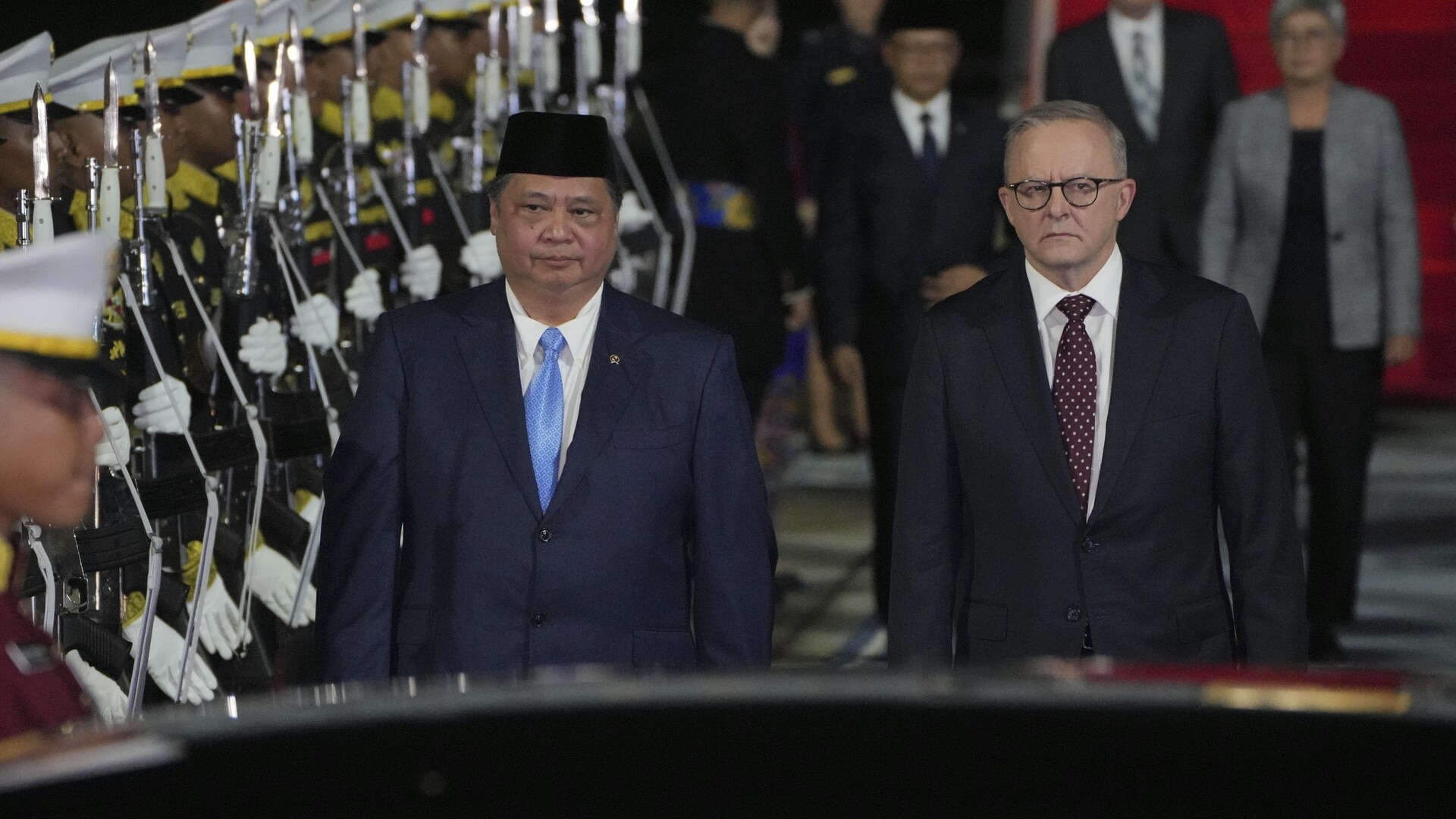
Asked about the inclusion of the 1965 massacre or 1998 military-sparked Jakarta riots that led to mass murders and gang rapes of Chinese-Indonesian women, he insisted those episodes would be written “based on facts”.
But, he added, “The question is; does it build national pride? Or does it divide? Our framework is the shared national ideology. We want unity. If history divides us, better not include it.”
The government’s determination to rewrite history coincides with a push to have Suharto - Prabowo’s ex-father in law - declared a national hero.
The Social Affairs Ministry confirmed last month the late autocrat was among a list of nominees under consideration sparking immediate push back from 30 civil society groups warning the plan risked whitewashing decades of human rights abuses and corruption by the former leader, including the 1965 massacre.
“Granting the title of national hero to a perpetrator of crimes against humanity would constitute a betrayal for victims and survivors of past human rights violations, many of whom have yet to receive recognition, justice or reparations,” the coalition, which included Indonesia’s Commission for Missing Persons and Victims of Violence, said.
Yet this is hardly the first time Indonesian elites have sought to expunge the public memory of dark events.
Suharto commissioned his own six-volume history series, titled The National History of Indonesia, which critics allege is riddled with inaccuracies.
For a few years after Suharto’s ousting, at the height of Indonesia’s reformasi era, Indonesian students were offered a more complete version of their country’s history with differing accounts that allowed them to weigh the evidence.
“That’s what it should be, especially for 1965 because there has not been an incontrovertible account of what happened,” says ANU emeritus professor Greg Fealy.
“What you should be training Indonesian students to do is to question critically, not rote learn a version designed to instil national pride.
“One wonders how the revised history textbooks might deal with highly contentious topics such as the invasion and integration of East Timor and separatism in Papua.”
But the reformasi version of history was soon replaced by successive Indonesian governments keen to play down state-sponsored violations as merely “national misfortunes”.
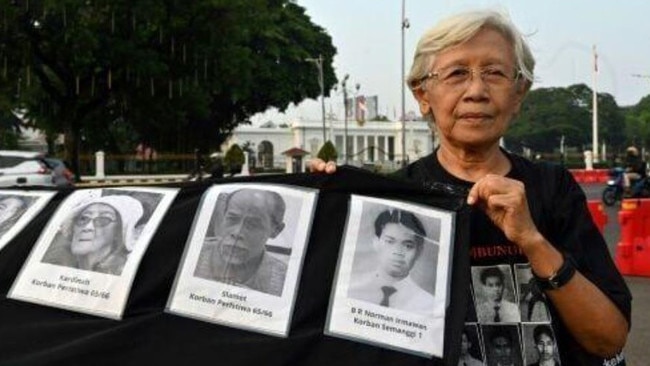
In the face of state intransigence, Bedjo Untung has made it his life’s mission to correct the record, conducting guided tours of mass graves and the sites of forced labour camps “to show what the New Order really did”.
“I completely reject the idea of the government rewriting the history of Indonesia because I am afraid the government would like to delete the struggles of the people that were not in line with the New Order regime,” he told the Weekend Australian.
“Until now the government has not taken responsibility for its violations against humanity in 1965. They want to delete it as though it never happened.”
Yanuar Nugroho says it now falls on civil society groups and Indonesian communities to prevent a mass forgetting by passing down living history.
“What’s at stake today is not just the narrative of the past, but the direction of our future,” he says. “If history is written by those seeking to erase their own tracks, then it is the people who must keep that memory burning.”


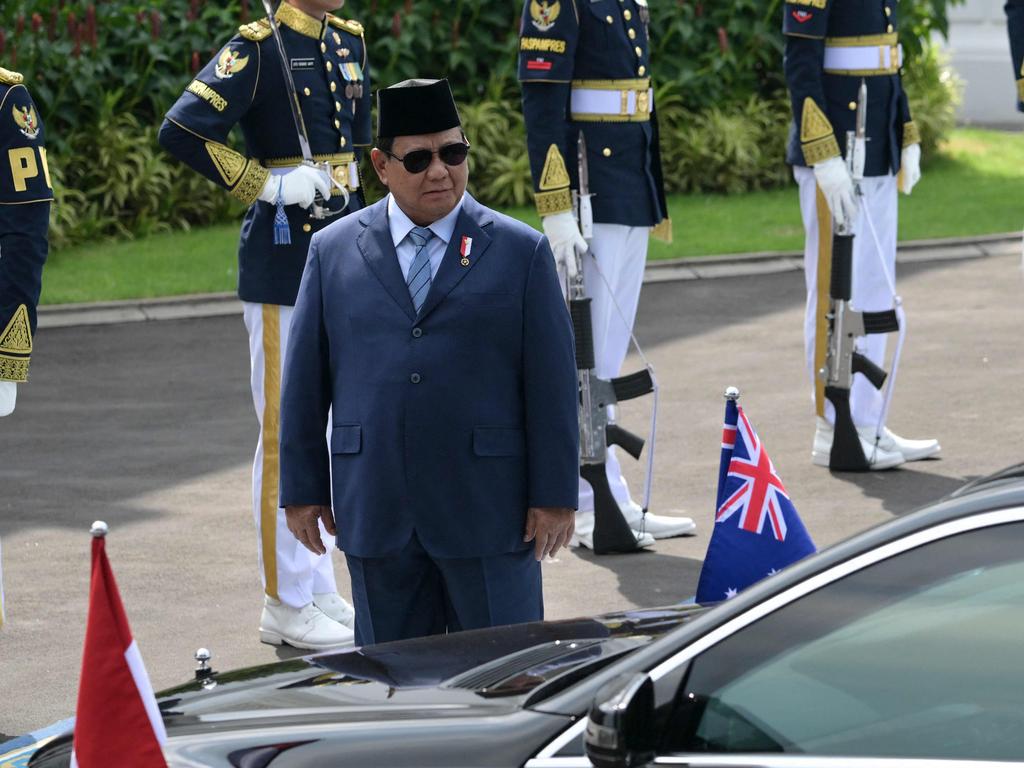

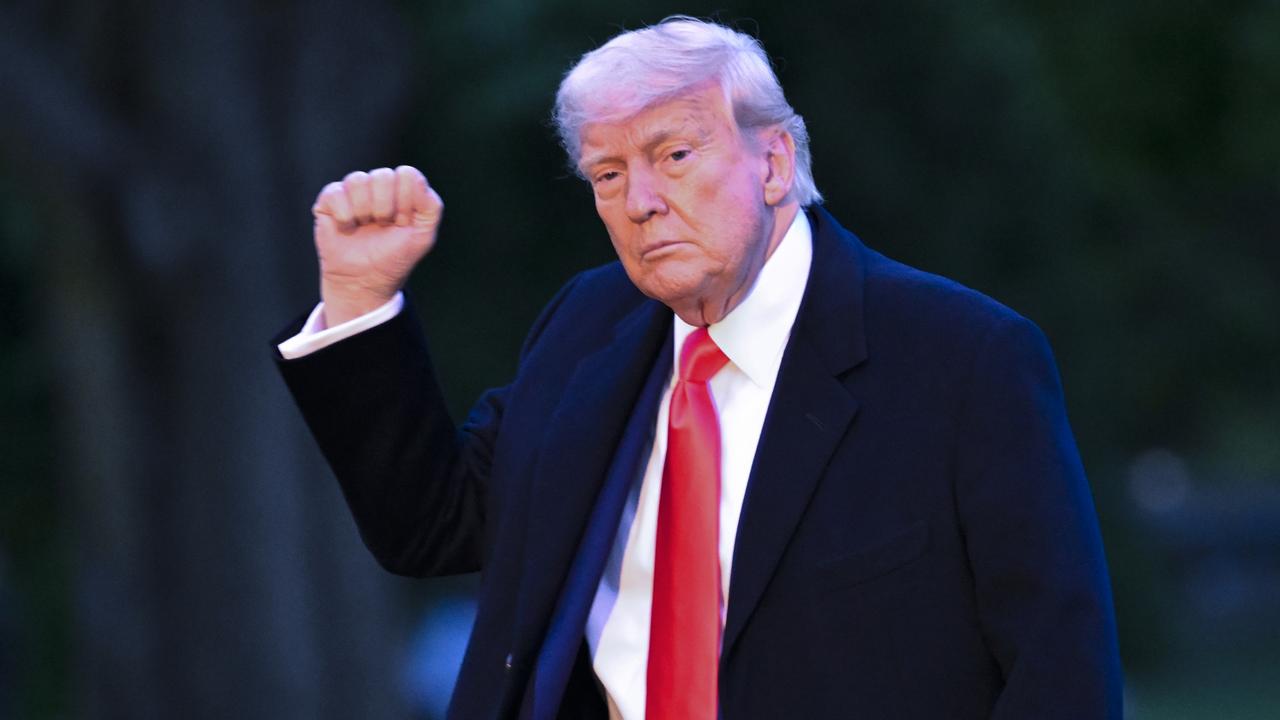

To join the conversation, please log in. Don't have an account? Register
Join the conversation, you are commenting as Logout